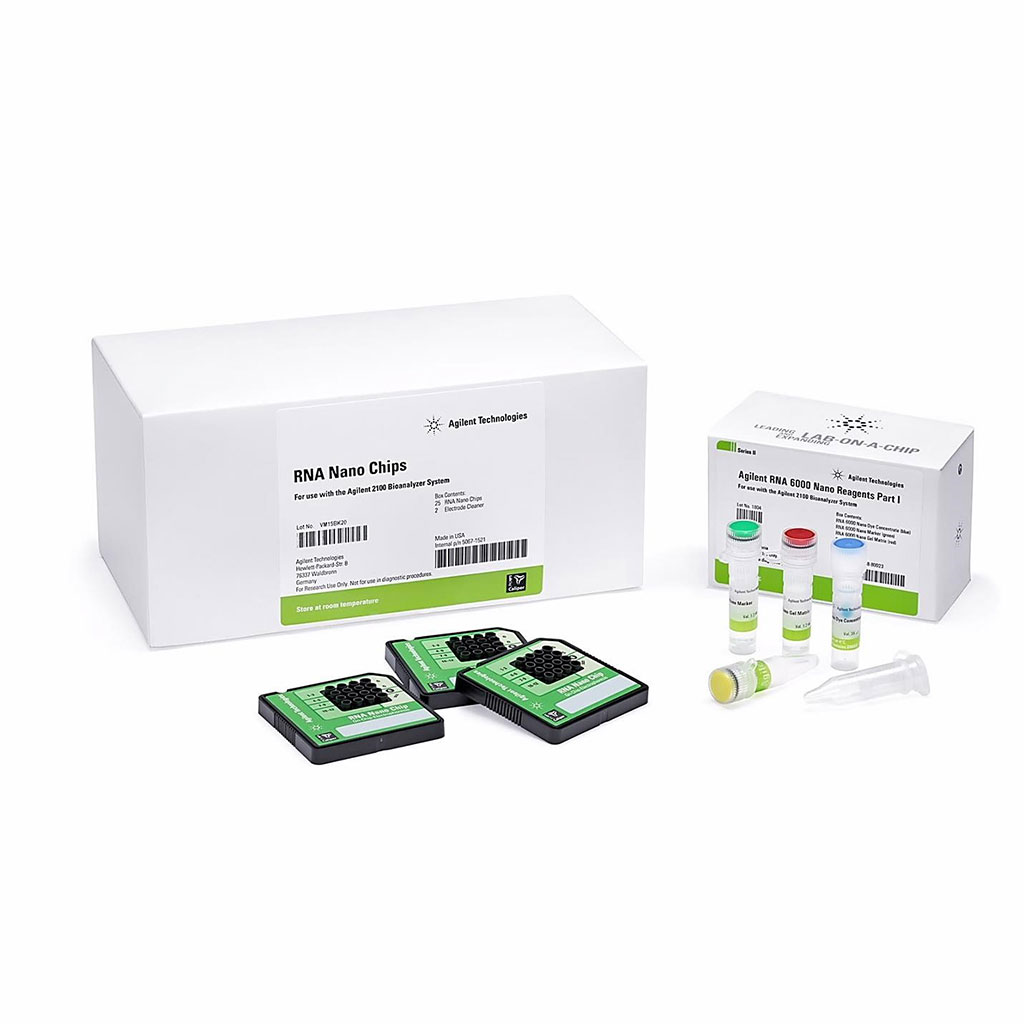RNA Sequencing as Alternative to Immunohistochemistry in Cancer Diagnostics
By LabMedica International staff writers
Posted on 06 Jul 2020
The conventionally used method for cancer diagnostics relies on immunohistochemical dyeing of tumor tissue sections. It allows detecting the presence and measuring the concentration of marker proteins characterizing malignant growths. The resulting microscope images indicate whether the tumor is malignant and what its molecular type is. This information is crucial for selecting the right therapy.Posted on 06 Jul 2020
Another alternative method is RNA sequencing which involves determining the sequence and the number of molecules for each RNA present in the cell. The resulting data, referred to as the transcriptome, reflects the activity of all genes in the cell. To analyze such vast arrays of data, bioinformaticians employ specialized algorithms and compile transcriptome databases for different human cells and tissues.

Image: The Bioanalyzer RNA 6000 Nano assay provides reliable and reproducible characterization of total RNA and mRNA from multiple sample types (Photo courtesy of Agilent Technologies).
Scientists at the Moscow Institute of Physics and Technology (MIPT, Moscow, Russia) and their associates examined biosamples of tumor tissues that were formalin-fixed and embedded into paraffin blocks (FFPE). Tissue samples were obtained from 39 breast cancers (BC) and 19 lung cancer (LC). The team performed the first correlation study of RNA sequencing and immunohistochemistry-measured expression profiles for the clinically actionable biomarker genes in FFPE cancer tissue samples.
RNA was extracted from FFPE sections using a QIAGEN RNeasy FFPE Kit (Hilden, Germany). The RNA 6000 Nano (Agilent Technologies, San Clara, CA, USA) or Qubit RNA Assay kits (Thermo Fisher Scientific, Waltham, MA, USA) were used to measure RNA concentration. RNA Integrity Number (RIN) was measured using Agilent 2100 Bioanalyzer. Immunohistochemistry assay for BC samples for HER2, ESR1, and PGR proteins was performed using antibody kits (Roche Diagnostics, Indianapolis, IN, USA) to identify the respective statuses of the tumors. For HER2, the output statuses were confirmed using the Roche Diagnostic’s ISH DNA Probe Cocktail assay.
The team reported that they had demonstrated high and statistically significant correlations between the RNA sequencing (Oncobox protocol, OmicsWay Corp, Walnut, CA, USA) and immunohistochemical measurements for HER2/ERBB2, ER/ESR1 and PGR genes in BC, and for PDL1 gene in LC; AUC: 0.963 for HER2, 0.921 for ESR1, 0.912 for PGR, and 0.922 for PDL1.
Anton A. Buzdin, PhD, who heads the Laboratory for Translational Genomic Bioinformatics, said, “We have shown for the first time that the findings of both methods are in perfect agreement for the selected set of biomarkers. It's just that immunohistochemistry requires a much greater number of attempts, one for every biomarker considered, meaning that much more biomaterial is needed. In turn, RNA sequencing enables us to quantitatively characterize the work of all protein-encoding genes, and there are about 20,000 of them.” The study was originally published on May 9, 2020 in the journal Biomedicines.









 (3) (1).png)




